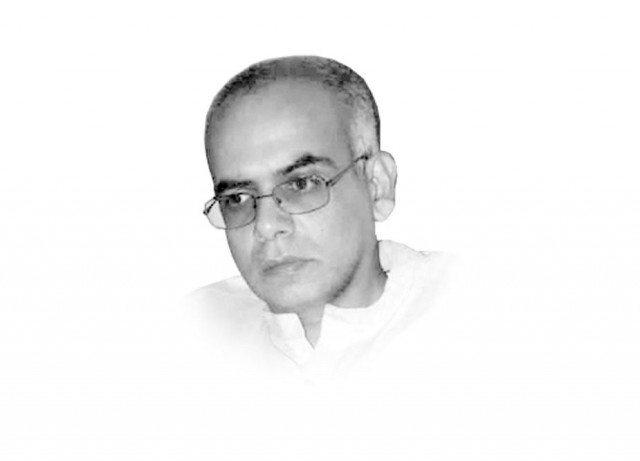Lingering disparities in education
Barriers to education in Pakistan include a chronic lack of investment in education

The writer is a development anthropologist. He can be reached at ali@policy.hu
Pakistan is among the world’s worst performing countries in education. Following Nigeria, we have the largest number of children who are still out of school (over 22 million), and a majority of these out-of-school children are girls. Gender disparities also persist and become worse at higher levels of education.
Besides the now well-established link between education and gender empowerment, better mother and child health and economic productivity, the need for educating girls is being recognised for lessening the risk of conflict as well as being vital to help combat climate change. Yet, the fact of the matter remains that multitudes of poor families in countries like our own cannot afford to send their children to school, and girls face additional barriers to receiving an education.
Government schools are generally more affordable than private education, but these schools sometimes also charge tuition, registration or exam fees. Almost always, government schools require the parents of their students to pay for stationery, copies, uniforms, school bags, shoes and transportation to school. Many poor families who cannot access a government school are left with options outside the government school system. These alternatives range from sending their children to fee-paying private schools and informal tuition centres, to free non-governmental organisation schools or madrassas, offering varied level of education.
According to the Human Rights Watch (HRW), there are serious barriers to education in Pakistan which include a chronic lack of investment in education, prohibitive school fees, corporal punishment and poor-quality schools. While examining these barriers to education need to be discussed in a separate article, it is important to note here how this international human rights agency squarely blames the government’s “abdication of responsibility” when it comes to providing universal education. Moreover, it goes on to assert how the government’s inability to provide public education has created an explosion of unregulated low-cost schools, which are not providing a good quality of education either.
Education is a constitutional obligation of the state and Pakistan is also signatory to several international frameworks obligating the government to ensure that all children, including girls, receive a decent education. The HRW is, thus, not wrong in taking the Pakistan government to task for its failure to provide adequate public education. However, laying the blame entirely on the government does not provide a complete picture.
For years Pakistan has been implementing donor-led education reforms, which have effectively curbed educational funding and encouraged the mushrooming of low-income private schools. Donors like the World Bank, and bilateral aid agencies like USAID and DFID, as well as a range of Pakistani-origin economists and academics have been advocating and lauding the growth of low-income private schools in the country. Yet, even low-income private schools operate for a profit, and they will remain reluctant to open schools in areas which are marginalised and where people cannot afford to pay their fees. It is thus likely that private schools will fill the gap of overcoming gender disparities in education or help achieve the goal of universal education in countries like Pakistan.
For Pakistan to fulfil its international and domestic obligations, it must ensure that education is not only provided free of all costs, but it should also be compulsory at least through primary school level. Human rights campaigners and educationists must do their bit to ensure that the government take on this responsibility and implement effective measures to secure universal education. They must, however, also take international donors and private sector enthusiast to task, who have been pushing the government to absolve itself of this responsibility by encouraging the growth of low-cost private sector education providers, which remain unable to deliver quality education for all.
Published in The Express Tribune, December 14th, 2018.
Like Opinion & Editorial on Facebook, follow @ETOpEd on Twitter to receive all updates on all our daily pieces.















COMMENTS
Comments are moderated and generally will be posted if they are on-topic and not abusive.
For more information, please see our Comments FAQ